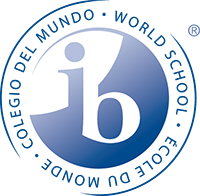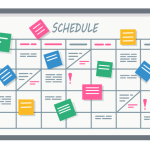Mock exams in DP1 are meant to be a “trial run” before finally sitting down for the dreaded IB Finals in DP2. They’re often considered more difficult than typical school exams, and thus, many students find themselves struggling with how to prepare for them. They may end up overworking themselves as a result, especially in the second semester. Burnout becomes common and motivation declines. Let’s see how to conquer mock exams without sacrificing our physical and mental health!
How do mocks work?
Most DP students are already well aware of mocks and how they work because of the stress we feel awaiting them. These will first be held towards the end of DP1. They are separated into the subjects you have chosen. Each subject has Paper 1 (multiple choice/short answer) and Paper 2 (longer answers). Some subjects like Psychology HL and Math HL have Paper 3. Mocks are strictly graded according to official mark schemes, which is why the grades are typically lower than those on regular school exams.
Mocks are meant to expose you to typical IB questions and their structure. This is where it’s important to understand command terms and, essentially, how to please the IB. In previous school years, most of us are told to answer questions with as much knowledge as we can, and if we don’t know something, we write something closely related to the original questions. But, surprise, the IB doesn’t work this way. You have to answer exactly in a way that the IB examiners require, and vaguely related information will do you no good.
Preparing for mocks will be stressful, but mocks should truly be seen as a way to improve and prepare for your finals. They are not a reflection of the grades you will get on your finals. They don’t really count towards your final grade the same way as IAs do, for example. They may be used to provide predicted grades, but don’t stress too much and treat them as a long practice.
Studying for mocks
If you’re used to procrastinating and tend to cram in studying on the day before an exam, then you are building bad habits that won’t help for mocks. This is where the first piece of advice comes in:
- Build good habits
Get used to studying a few days earlier than you would usually, using the day before the exam as a final revision to go briefly over everything to refresh your memory. Do this for your school exams and quizzes, and this will become routine. This is what will make studying for mocks much easier and more manageable.
The best way to refresh your memory to achieve this is with your notes. This is the second piece of advice:
- Use notes, books, and handouts effectively
Make sure your notes are neat and legible. Try to structure them in a way that makes sense for what you’re studying. If you have a textbook or study guide for a certain subject, read the part of the book that covers what you’re studying. Your study guide may contain information that you missed during the lesson, or certain wording that makes a concept easier to understand. Write this down in your notebook. Any handouts you have can also be greatly important. For the tasks on these handouts, always correct yourself if you get something wrong. Write down anything and everything that may be useful. Copy this down into your notebook or glue the handouts within it. This way, your notebook will be your ultimate study guide and best friend for mock preparation. This also highlights the third piece of advice:
- Repetition
Repeat, repeat, and repeat. This is crucial to studying. Once you fully understand a concept, repeat and reread until you’re bound to never forget it. Topics that you find harder to understand should be repeated even more. Repetition can help you get used to certain questions and their wording, which can make recalling information and solving questions much faster. This could even save you in some situations. For example, you may find yourself completely clueless on a certain type of math problem. No matter how much you ask, it just doesn’t click. However, if you constantly repeat it, the method of solving the particular problem will become second nature to you, and you may potentially understand it in the end.
The best way to repeat is through practice and solving.
- Practice and solving
Use old questions and past papers to review. Solve math problems from your books and anything you have available. Recite information from your science subjects as if you were giving a lecture. Record, rewrite, and do whatever helps. Just make sure you’re consistently applying your knowledge in some way. Understanding information isn’t enough to be able to use it.
However, the absolute most useful piece of advice for studying is the following:
- Study consistently and routinely!
As soon as you learn something new, take 10 minutes of your day to review it. If there’s something you don’t understand, make sure you figure it out that same day or week. Don’t leave it for the week before mocks! You should understand everything before your mock studying, in other words, you shouldn’t be learning anything new during that final week. Take around 30-60 minutes during the weekend to just review everything you have learned during that week. Take advantage of quizzes and use them as a way to assess your knowledge up to that point. This builds good habits and is a great way of repeating information. This will make studying for mocks infinitely easier. That final week before mocks should be a time for reviewing everything you already know!
The mind matters
All of this advice can be applied, but it may be hard to manage all of this while maintaining good health. It’s very common to feel burnt out coming into the second semester, while many students don’t feel motivated at all. Here are some ways to maintain your health while doing your best to achieve top marks!
Physical health
- Exercise and workout
This doesn’t have to mean going to the gym 2 hours each day. Just try to incorporate any sort of physical movement into your daily routine. This could mean playing sports, walking your dog, doing some stretching in the morning, etc. Taking care of your body has many benefits, such as reducing stress. It’s highly important to be active.
- Eating healthy
Eating clean will provide you with the energy you need to fuel your body for school and studying. Junk food can make us feel way too full, making us often feel worse afterwards. Try to incorporate a variety of foods from different food groups. Don’t overconsume any one type of food. Make sure to have enough protein, fiber, carbs, and so on. Drink plenty of water and, of course, treat yourself once in a while.
- Hygiene
Maintaining personal hygiene is something that should be done in general, but it can help clear your mind and make you feel better. If it helps, take a quick shower before studying to feel more refreshed and ready. Changing your clothes can help as well so you don’t feel “stuck” in any way. Prioritize yourself and treat free days as self-care days. Feeling clean and refreshed is more helpful than people care to admit.
Mental health
- Take breaks
It may feel impossible to take breaks while studying. We want to finish as soon as possible, and sometimes, we feel “lazy” for wanting to simply relax for a few minutes. In your study routine, take some time to relax before getting back to it. Use the Pomodoro or any other sort of timing methods if you find them helpful. Use breaks to truly relax; don’t doom-scroll on social media. Instead, eat a snack, drink some water, or call a friend to talk for a bit. Just try to take your mind off studying and work for a few minutes.
- Communicate with yourself
Take time to understand how you’re feeling. If you feel very stressed or overwhelmed, talk with someone or write it in a journal. Process it in a way that works for you. If anything gets too severe, let your family know so you can work on it together. You should try to be in tune with your emotions as much as you can. Ignoring your needs and sacrificing your well-being to complete something can hurt in the long-term, even if we don’t think that. Listen to yourself and give yourself the time of day.
- Organization
If you study consistently and develop good habits, organization becomes only natural. Organize yourself in a way in which you won’t have weeks that are extremely busy, while other weeks during which you have barely anything to do. Do some things ahead of time if you can to save yourself the torture later. Take time to enjoy hobbies and being with your friends and family. School is important, but being miserable won’t make it any easier.
Conclusion
Studying for mocks can be very demanding in terms of time and health. However, never sacrifice your health for the sake of completing something. Enjoy your life, and organize your school duties to avoid feeling stressed or pressured. Of course, there’s only so much we can do, and we can’t help it if there are too many assignments or exams in a week. Still, by building good habits, mock exam studying becomes much easier, and we don’t feel overwhelming amounts of worry. Good luck with studying, and remember to take breaks and have fun!




